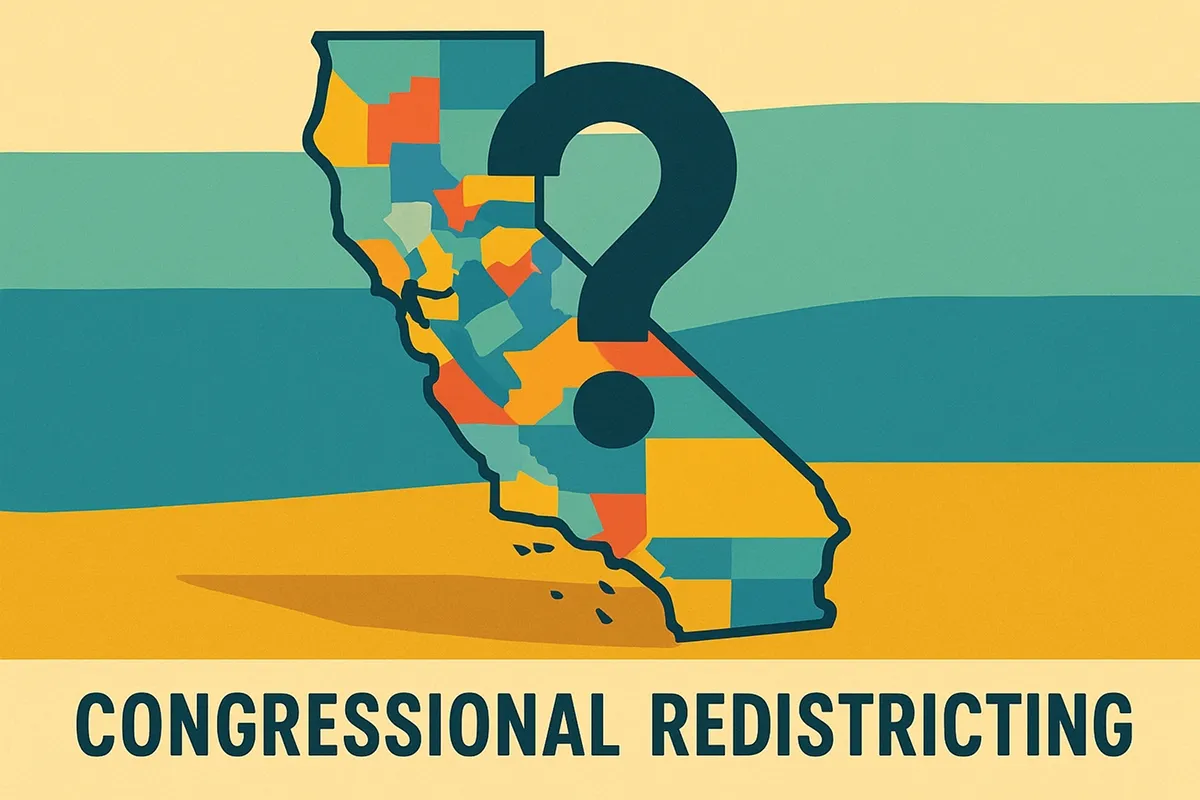
The Facts
California Democrats voted to place Proposition 50 before voters in a November 4 special election after more than five hours of heated debate, according to Hannah Wiley at The Standard. Governor Newsom's "Election Rigging Response Act" would temporarily replace congressional maps drawn by California's independent redistricting commission with a partisan map that favors Democrats for the next three election cycles.
The revised maps would modify five Republican districts throughout the state to make them easier for Democrats to win. Newsom framed the initiative as retaliation against Texas Republicans who redrew their maps to help the GOP maintain its slim House majority.
The Context
California's independent redistricting commission was created more than a decade ago with bipartisan support. The commission consists of five Democrats, five Republicans, and four nonaffiliated voters tasked with drawing fair district lines. It's widely been considered a success and prevented explicitly partisan gerrymandering.
Prop 50 faces significant opposition, including from former Gov. Arnold Schwarzenegger, who helped establish the independent commission. A recent poll by Axios showed 57% of California voters back Prop 50, while an earlier POLITICO-Citrin Center-Possibility Lab poll showed that "strong majorities in both parties prefer an independent panel draw the House district lines."
In mid-August 2025, the Republican-controlled Texas House approved a gerrymandering plan to add five new Republican-leaning U.S. House districts, increasing GOP-held seats from 25 to potentially 30 of the state's 38 congressional seats.
The GrowSF Take
This partisan gerrymander is morally distasteful but politically necessary. When one party changes the rules to benefit itself and cling to power, the other party has a duty to respond in kind, lest it permanently forfeit its ability to compete.
And yet, this kind of process manipulation ultimately undermines public trust in government. Texas Republicans' gerrymandering is antidemocratic, California's gerrymandering is equally antidemocratic, and in an ideal world both would be rejected. But we live in the real world, and our politics are far from perfect.
Effective governance requires consistent rules and accountable processes, not ad-hoc political fights that prioritize short-term gains over long-term stability. Some day we hope to have that, but today is not that day.
Generate a Personalized Email to the Board of Supervisors
To:
Sign up for the GrowSF Report
Our weekly roundup of news & Insights